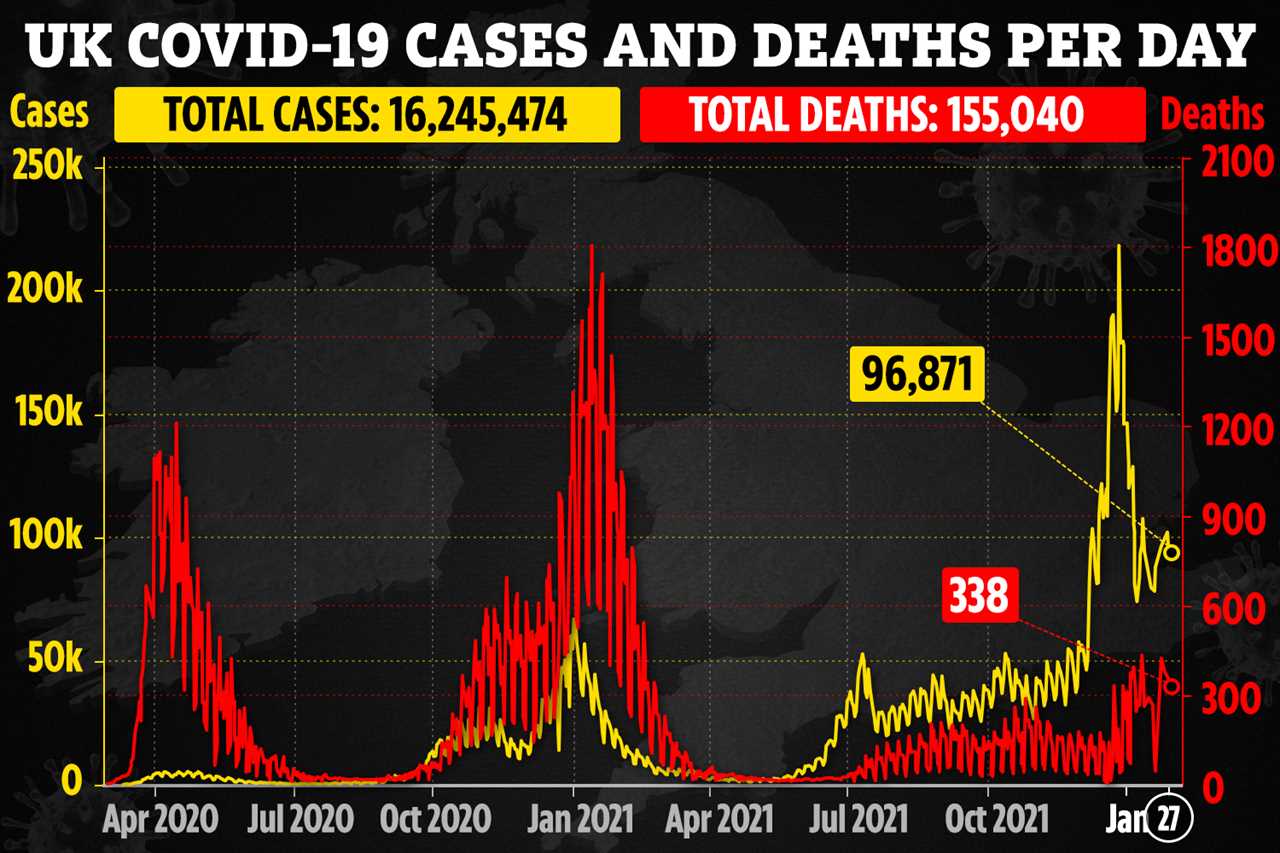THERE are a number of symptoms that mean you should get yourself checked for Omicron.
The signs are wide ranging and present as more cold-like or flu, especially in the vaccinated.

Covid booster jabs protect against Omicron and offer the best chance to get through the pandemic, health officials have repeatedly said.
As more variants appear more possible symptoms have popped up – like muscle aches, gut problems and feeling dizzy.
Some are less common, but others are being regularly logged by people hit with the latest variant.
One expert has warned there are two signs that are likely to mean you have Omicron.
Professor Tim Spector, the lead scientist behind the Zoe Symptom Study App, said: “There has been significant increase in reports of sore throat and hoarse voice.
“So that the frequency of those is much more common than it was.
“It’s much more common now with Omicron than it was with other variants. so sore throats are a really key sign of Omciron.
“People describe it as scratchy type of sore throat and very painful – something they’ve not really found before with other colds.”
If you get a positive test from a lateral flow but with no symptoms you must isolate, and don’t have to get a follow-up PCR.
But if you are showing symptoms – such as a sore throat or hoarse voice, you need to get a PCR, regardless of the LTF results.
There are several early warning signs to watch out for that could be mistaken for a cold – these include headaches, runny noses and sneezing, among others.
Each week experts working on the study reveal the top 20 symptoms seen in Brits.
It’s especially helpful to know what symptoms they have when infected with the variant, as it helps others look for clues they too could be ill.
The NHS still lists a new persistent cough, a loss of taste and smell and a high temperature as the key signs of Covid.
But it’s important that if you think you have Covid from any known symptom you get a test and isolate for five full days and take lateral flows to be released.
It comes as official new data revealed booster jabs slash the risk of dying with Omicron by 95 per cent.







